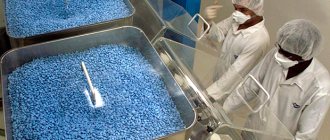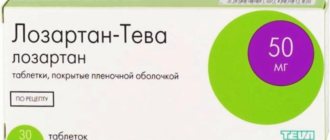Trade name of the drug: Aescusan®
Dosage form: oral solution
Composition: 100g of the drug contains: Active components: Horse chestnut seed extract dry (5 - 7:1) ……. 4.725g Hippocastani extractum siccum normatum (extractant ethanol 60% v/v) Thiamine hydrochloride……. 0.50g Excipients: Ethanol 96%……. 26,400g Purified water……. 67.675g Lactose monohydrate……. 0.432g Colloidal silicon dioxide……. 0.243g
Description Transparent or slightly turbid liquid from yellow to reddish-brown color with a characteristic odor. During storage, sediment may form.
Pharmacotherapeutic group Venotonic agent of plant origin.
ATX code: С05СХ
Pharmacological properties Has antiexudative and venotonic effects. It has been established that horse chestnut seed extract reduces the concentration of lysosomal enzymes, resulting in a decrease in the breakdown of mucopolysaccharides in the area of capillary walls. Aescusan® reduces vascular permeability, preventing the filtration of low molecular weight proteins, electrolytes and water into the intercellular space.
Indications Chronic venous insufficiency of class I - III according to the CEAP classification: varicose veins, swelling, cramps in the calf muscles, a feeling of heaviness in the legs.
Contraindications Hypersensitivity to the components of the drug, liver disease, lactose intolerance, lactase deficiency, glucose-galactose malabsorption, children's age (up to 12 years).
With caution: Alcoholism, traumatic brain injury, brain diseases, children (over 12 years).
Use during pregnancy and breastfeeding Due to the lack of sufficient research, the drug is not recommended for use during pregnancy and breastfeeding.
Method of administration and dosage: Take the drug orally before meals, 12-15 drops 3 times a day, dilute in a small amount of water before use. The duration of therapy is determined by the attending physician. Shake before use.
Side effects Possible allergic reactions, irritation of the gastrointestinal mucosa, headaches, dizziness.
Overdose In case of overdose, a feeling of heaviness in the epigastric region may occur. The drug should be discontinued. Treatment: symptomatic.
THERE ARE CONTRAINDICATIONS, YOU MUST CONSULT WITH A SPECIALIST.
Special instructions The drug contains 31% ethanol. If the recommended dosages are observed, up to 0.128 g of ethanol enters the body with each dose of the drug; the maximum daily dose of the drug contains up to 0.384 g of ethanol. During the period of use of the drug, care should be taken when performing potentially hazardous activities that require increased attention and speed of psychomotor reactions (driving a car and other vehicles, working with moving mechanisms, working as a dispatcher and operator). During long-term storage of preparations (liquid dosage forms) based on medicinal plant raw materials, turbidity and sedimentation may occur, which does not affect the quality of the preparation.
Release form Solution for oral administration. 20 ml in a dark glass bottle with a dropper stopper and a screw-on plastic cap. The bottle along with instructions for use is placed in a cardboard box.
Storage conditions Store at temperatures from 8° to 25° C. Keep out of the reach of children!
Shelf life: 3 years. Do not use after expiration date.
Conditions for dispensing from pharmacies Without a prescription.
Manufacturer Pharma Wernigerode GmbH Dornbergsweg 35 38855 Wernigerode, Germany.
Registration Certificate Holder:
Esparma GmbH, Bielefelder Strasse 1,
39171 Sülzetal, Germany.
Organization that receives complaints from consumers
Representative office of Esparma GmbH (Germany), Moscow:
115114, Moscow, st. Letnikovskaya, 16, 6th floor, room. 21/1, 23-27
tel.
Fax
e-mail: The email address is protected from spambots. Javascript must be enabled in your browser to view the address.
Aescusan drops 20ml
- swelling, cramps in the calf muscles;
- pain and feeling of heaviness in the legs;
- phlebeurysm;
- hemorrhoids.
Contraindications
Hypersensitivity to the components of the drug, liver disease, lactose intolerance, lactase deficiency, glucose-galactose malabsorption, children's age (up to 12 years).
Directions for use and doses
Prescribed orally 12-15 drops 3 times a day.
The drug should be taken before meals with a small amount of liquid.
Before taking the drug, the contents of the bottle should be shaken.
Storage conditions
The drug should be stored at a temperature from 8°C to 25°C; do not freeze.
Best before date
3 years. Do not use after expiration date.
special instructions
The drug contains 31% ethanol.
If the recommended dosages are observed, up to 0.128 g of ethanol enters the body with each dose of the drug; the maximum daily dose of the drug contains up to 0.384 g of ethanol. During long-term storage of preparations (liquid dosage forms) based on medicinal plant raw materials, cloudiness and sedimentation may occur, which does not affect the quality of the preparation.
Description
A herbal medicine used for venous circulation disorders.
Dosage form
The solution for oral administration is yellow to reddish-brown in color, transparent or slightly cloudy, with a characteristic odor; During storage, sediment may form.
Pharmacodynamics
A drug used for venous circulation disorders. Contains horse chestnut fruit extract, has an anti-exudative, venotonic effect. It has been established that horse chestnut fruit extract reduces the concentration of lysosomal enzymes, as a result of which the breakdown of mucopolysaccharides in the area of capillary walls is reduced. Aescusan reduces vascular permeability, preventing the filtration of low molecular weight proteins, electrolytes and water into the intercellular space. In randomized, double-blind and crossover studies, a decrease in transcapillary filtration and a significant decrease in edema, a decrease in the feeling of heaviness, fatigue, tension, itching, and pain were noted.
Side effects
Allergic reactions, irritation of the gastrointestinal mucosa, headaches, and dizziness are possible.
Use during pregnancy and breastfeeding
There are clinical data on the use of Aescusan during pregnancy in patients with varicose veins and peripheral venous edema.
Aescusan should be used with caution during lactation, because... the drug contains ethanol.
Interaction
The effect of thiamine, which is part of the drug Escusan, decreases when used simultaneously with sulfite-containing infusion solutions.
Overdose
To date, no cases of overdose of the drug Escusan have been reported.
Impact on the ability to drive vehicles and operate machinery
During the period of use of the drug, care should be taken when performing potentially hazardous activities that require increased attention and speed of psychomotor reactions (driving a car and other vehicles, working with moving mechanisms, working as a dispatcher and operator).
Aescusan 20 40 pcs. film-coated tablets
pharmachologic effect
Venotonic agent of plant origin.
Composition and release form Aescusan 20 40 pcs. film-coated tablets
Film-coated tablets - 1 tablet. dry extract from horse chestnut fruit (Aesculus hippocastanum L.) - 250 mg, which corresponds to 20 mg of triterpene glycosides in terms of anhydrous escin, excipients: magnesium stearate; dimethicone 200; methylhydroxypropylcellulose; polyoxyl 40-stearate; titanium dioxide; polyethylene glycol-35000; MCC; silicon dioxide; water in a blister or bottle 20 pcs.; There are 2 blisters or bottles in a box.
Description of the dosage form
Red-brown tablets.
Directions for use and doses
Inside, after meals, with the required amount of liquid, 1-2 tablets. 3 times a day. Course - 3 months (longer if necessary after consultation with a doctor).
Pharmacodynamics
It has an anti-exudative and venotonic effect. It has been established that horse chestnut seed extract reduces the concentration of lysosomal enzymes, as a result of which the breakdown of mucopolysaccharides in the area of capillary walls is reduced.
Aescusan® reduces vascular permeability, preventing the filtration of low molecular weight proteins, electrolytes and water into the intercellular space.
Indications for use Escusan 20 40 pcs. film-coated tablets
Chronic venous insufficiency MP class according to the CE AR classification; varicose veins, swelling, cramps in the calf muscles, feeling of heaviness in the legs.
Contraindications
Hypersensitivity to the components of the drug, liver disease, lactose intolerance, lactase deficiency, glucose-galactose malabsorption, children's age (up to 12 years).
With caution: alcoholism, traumatic brain injury, brain diseases, children (over 12 years).
Application of Aescusan 20 40 pcs. film-coated tablets during pregnancy and breastfeeding
Due to the lack of sufficient research, the drug is not recommended for use during pregnancy and breastfeeding.
special instructions
The drug contains 31% ethanol. If the recommended dosages are observed, up to 0.128 g of ethanol enters the body with each dose of the drug; the maximum daily dose of the drug contains up to 0.384 g of ethanol.
During the period of use of the drug, care should be taken when performing potentially hazardous activities that require increased attention and speed of psychomotor reactions (driving a car and other vehicles, working with moving mechanisms, working as a dispatcher and operator).
During long-term storage of preparations (liquid dosage forms) based on medicinal plant raw materials, cloudiness and sedimentation may occur, which does not affect the quality of the preparation.
Impact on the ability to drive vehicles and operate machinery
During the period of use of the drug, care should be taken when performing potentially hazardous activities that require increased attention and speed of psychomotor reactions (driving a car and other vehicles, working with moving mechanisms, working as a dispatcher and operator).
Overdose
In case of overdose, a feeling of heaviness in the epigastric region may occur. The drug should be discontinued. Treatment: symptomatic.
Side effects Escusan 20 40 pcs. film-coated tablets
Allergic reactions, irritation of the gastrointestinal mucosa, headaches, and dizziness are possible.
Drug interactions
The effect of thiamine is reduced when used simultaneously with sulfite-containing infusion solutions. Fluorouracil, vinblastine, bleomycin, cisplatin interfere with the absorption of vitamin B1. Penicillamine and isoniazid reduce the effectiveness of vitamin B1, increasing its excretion.
Aescusan
Aescusan (thiamine + escin) is a herbal medicine used to normalize the condition of the blood vessels of the venous bed. Escin is a saponin isolated from horse chestnut. Preparations based on this plant have always been in demand in folk medicine. They help with varicose veins in three directions at once, eliminating swelling, reducing inflammation and increasing the tone of the venous walls. Escin also promotes the preservation of their main structure-forming element, mucopolysaccharides, in the walls of blood vessels. Under the influence of horse chestnut extract, the permeability of the venous walls decreases, which prevents the release of proteins and electrolytes into the interstitial space and prevents the development of edema. In addition to this, the drug eliminates such typical manifestations of varicose veins as heaviness in the lower extremities, itching, pain, and a feeling of fatigue. The decongestant effect of taking Escusan is comparable to wearing compression stockings. However, the latter is not entirely convenient in the summer and does not have any effect in approximately half of patients with varicose veins. As is known, this disease is chronic, steadily progressing and aggravating the condition of the blood vessels of the venous bed. In this regard, the key task of a phlebologist is to stop the development of the disease, which requires a fairly long course of medication. Aescusan is one of the most promising drugs in this area.
The experience of its use dates back more than one decade, during which the drug has gained the trust of not only doctors, but also their patients. Aescusan is available in the form of drops. The drug is suitable for long-term (2-3 months) continuous use. It is advisable to conduct several such drug courses per year. The advantage of the drug is the high compliance (adherence) of patients to treatment, amounting to 95%. The optimal time to take it is immediately before meals. Before use, the bottle of drops should be shaken vigorously. Side effects when taking Escusan are extremely rare and are limited only to dyspeptic symptoms. The only direct contraindication to the use of the drug is individual intolerance to its components. Aescusan can be used during pregnancy and lactation (in the latter case, with extreme caution due to the presence of ethanol in the drops as an auxiliary component). Deterioration in the transparency of the solution and the presence of sediment are not reasons for disposing of the drug: this is a common phenomenon that can occur during long-term storage. This does not in any way affect the effectiveness or safety. Cases of overdose with Aescusan have not yet been encountered. Sulfite-containing infusion solutions may reduce the effectiveness of thiamine, one of the active components of the drug.

